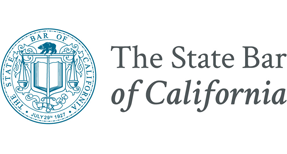Driving under the influence (DUI) of alcohol is incredibly dangerous. Because of this, many states, including California, have strict penalties for people caught driving under the influence.
One of the penalties for a DUI in California is the suspension of your driver’s license. (Note: The DMV will actually suspend your driving privilege but for the purposes of this article, we will use the term license suspension.) On top of fines, potential jail time, and community service, having your license suspended for an extended period of time can make essential tasks like getting to work or buying groceries difficult.
If you or a loved one was arrested for a DUI in California, you should do everything in your power to avoid a suspended license. Fortunately, if it is a first-time DUI arrest, it may not mean that your license will be automatically suspended – but it does mean that you will have to fight to retain your driving privileges.
At The Law Offices of Bryan R. Kazarian, our attorneys have extensive knowledge about DUI law in Orange County and we are well-equipped to defend your state and federal constitutional rights in court. We will do everything in our power to preserve your ability to drive legally in California.
Understanding DUI Penalties in California
There are two kinds of license suspensions for drunk driving in California. One is handed out by the criminal court, and the other from the Department of Motor Vehicles (DMV). Here is how it works.
When you are arrested on suspicion of a DUI in California, your driver’s license is confiscated by the arresting officer, and you are given a 30-day temporary license. During the first 10 days following your arrest, you must request a DMV Administrative Per Se (APS) hearing with the Driver’s Safety Office of the California DMV. If you fail to request this hearing, you forfeit your right to have an APS hearing and your license will be automatically suspended when your 30-day temporary license expires.
A suspension that results from a negative outcome at your APS hearing or for a failure to set an APS hearing is an administrative suspension by the DMV and is separate and independent of your criminal case. If you are successful at your DMV hearing, your license will not go into suspension. If you lose at the DMV hearing or do not set a hearing, your license is suspended for approximately four months.
If you refused to take a blood or breath test after your arrest, or if you have prior DUI convictions, your driver’s license can be suspended for a year or more. However, if your Blood Alcohol Content (BAC) is registered below .08, you will not be subject to an administrative driver’s license suspension by the DMV.
An experienced DUI attorney can help you schedule your hearing and defend yourself at an APS hearing with the DMV. Although it can be difficult to win an APS hearing, your chances greatly increase by having a lawyer on your side.
Court Conviction for a First-Time DUI in California
If you are convicted of a first-time DUI in a California criminal court, the conviction automatically triggers a license suspension of six months under Vehicle Code 13352. Once you are convicted, the court notifies the DMV, which imposes the suspension. However, if you can have your charges reduced to something other than a DUI — like reckless driving — then there is no automatic suspension.
If you decide to take your first-time DUI case to trial and the verdict is “not guilty” or there is a mistrial, then there is no court-triggered license suspension. Also, it is worth noting that the California DMV will usually let anyone who agrees to install an Ignition Interlock Device (IID) in their vehicle continue to drive even if your license is suspended.
The Differences Between the Court & the DMV
The criminal court and DMV hearing are separate and independent of each other. Though the outcome of both will affect your driving privilege, the criminal court case focuses specifically on whether you are guilty of a crime. Additionally, the rules of evidence are different in each. Some evidence that is admissible in your DMV hearing may not be allowed in your criminal case.
Here are a few other differences between the criminal court proceedings and the DMV hearing:
- Setting a DMV APS hearing is optional but you or your attorney, and sometimes both, must attend all criminal court proceedings.
- A successful or unsuccessful DMV hearing does not affect your DUI court proceedings. DMV officers are only in charge of acting against your driving privilege..
If you are acquitted in court for your criminal case, it is possible to reverse a suspension from the DMV. Because a DUI is a serious charge with real repercussions, having an Orange County DUI attorney on your side can make a huge difference in the outcome of your case.
How to acquire a restricted license?
If you lose a first-time DUI case in California and your license is suspended, there are a few options for continuing to drive with restricted privileges. The State grants two types of restricted licenses. They include:
- IID restricted license. An Ignition Interlock Device is a breathalyzer that prevents a car from starting if the driver has any measurable amount of alcohol on their breath. People who agree to install an IID in their cars are usually granted the privilege to continue driving.
- Restricted license. This license allows you to drive to and from work, school, and California DUI school.
If you or a loved one have been arrested on suspicion of driving while under the influence, call our office within the first 10 days to protect your driving privilege.
Contact our California DUI Attorneys today
A DUI arrest in California is a big deal, especially if you depend on your driver’s license for daily activities. Fortunately, if it is a first-time offense, an Orange County DUI lawyer can use a myriad of methods to have your charges dismissed or reduced.
At The Law Offices of Bryan R. Kazarian, our attorneys will do everything in their power to help you avoid a suspended license. If you or a loved one is being charged with a DUI in California, give us a call today at 855-918-4253 or contact us online to discuss your case.








